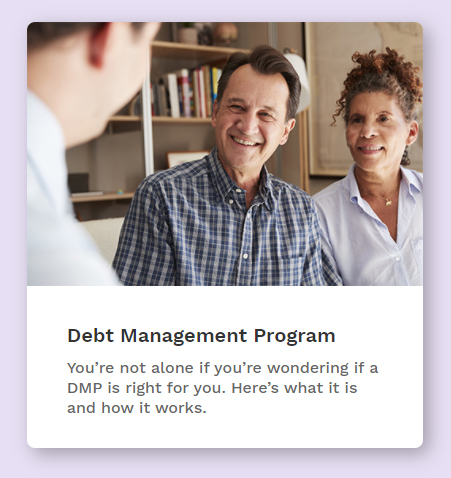How to Manage Your Money During a Strike
Tips from Financial Educator, Mark Kalinowski, for How to Brace Your Budget When Facing the Reality of Strike Pay
By Julie Jaggernath
If you’ve ever been involved in strike action at work, then you’ll know how stressful and unpredictable the situation can be. It can also happen quite suddenly with little time to get your personal finances prepared for strike pay. With the ongoing strike action from federal Public Service Alliance of Canada (PSAC) workers, you might be worried about how you’ll manage. Here are some quick tips to help you deal with the reduction in income during a strike.
Start With a Budget to Protect Your Cash
It’s crucial to make the most of your money when you’re facing a challenging financial situation. Start by building an emergency budget based on your reduced income. If you’re still receiving your full pay, start living on the reduced income budget right away and put any money you’re saving into your emergency fund. That will keep it safe for when your income does decrease or stops entirely.
When you’re creating a household budget, begin by tracking your spending to see where your money is actually going. With so many individuals and families spending so much of their income on necessities and relying on credit to make ends meet, facing a reduction in income makes it even more important to get a solid grasp of how much money is coming in and going out. Tracking your spending allows you to better understand how much money is required to manage expenses for the duration of the strike.
As you outline your budget, don’t forget to include any other sources of income that are still coming in, for example:
- Partner’s income (if applicable)
- Hardship assistance or strike pay – check with your union
- Any regularly expected deposits for those in your household (GST/HST, Canada Child Benefit, pensions, etc.)
- Alimony or child support from a former spouse whose income is not impacted by strike action
Federal government benefits can, however, be delayed when certain federal departments are on strike.
Take a Closer Look at Your Expenses
When facing a drastic reduction in income, cut back just as drastically with your budget. Adopt an approach of “the leaner the better” and incorporate a small treat now and again as your reward for toughing it out. Remind yourself that this is temporary, a way to get by without incurring more debt and hardship. It won’t be easy, but your future self will thank you.
Low Income, No Income – Now What?
Here are a few ways you can cut back:
- Reduce – or even stop – spending money, e.g. no new hoodie just because it’s on sale, plan meals and cook at home rather than pick up take-out, or watch Netflix at a friend’s house rather than going to the theatre.
- Adjust the timing of an expense, e.g. put off the purchase of a new car or appliance until you’re back to your regular income.
All-or-nothing budgets are hard, but repaying a mountain of debt once you’re back to work will be even harder. Ask friends, join ‘buy nothing’ social media groups, and check out blogs and online resources for ideas to help you live with drastically reduced spending.
The Simplest Way to Keep Track of Your Spending When Money is Tight
Facing a Shortfall? Consider All of Your Options to Secure a Cash Flow
If you’re facing a shortfall on your reduced-income budget, you may want to consider other ways to earn a short-term substitute for some of the lost income. This could be a part-time, temporary, or gig type job. Having a side hustle to focus on is also a great way to help prevent the spending that can occur when a person is idle or looking to fill time.
If you have an emergency fund, now is the time to think about using it. Next, make a list of your savings accounts and prioritize their use based on tax implications and personal values. Tax Free Savings Accounts (TFSAs), vacation or birthday accounts can all be used and refilled once you’re back to work. RRSPs are often considered a last resort because there are tax implications when you withdraw money from them.
While borrowing during a time of reduced income should be a last consideration to make ends meet, it is something you may decide to do. You will typically also need to rely on the credit you have available to you before you go on strike, rather than apply for additional credit. Lenders are not always able to consider your normal rate of pay while you’re on strike, so qualifying for new credit is not always possible.
If you have a HELOC (home equity line of credit) with available funds, it could cover off a shortfall for essential living expenses. HELOCs often have the best available interest rates and may require an interest-only payment on the funds you borrow. However, while the interest-only payments can get you through a difficult time, borrowing and paying even interest only means that you need to top your payments up once you’re back to work so that you pay your HELOC off again.
While not as cost effective due to high interest rates, a PLOC (personal line of credit) might be an option if you do not own a home or do not have sufficient equity to obtain a HELOC. An unsecured personal line of credit will usually require a blended minimum payment, with a portion of each payment going towards the principle as well as the interest. But again, try your best not to borrow your way through a difficult time; reduce your spending and increase your income wherever possible first.
What Do Lenders Look at When Evaluating a Credit Application?
When More Cash or Credit Isn’t an Option
If the strike goes on for a long time or if you just don’t have the savings and/or available credit to get by on your own, it’s time to consider other options around deferring your payments, asking creditors for creative debt relief solutions, or even selling assets.
Reach out to your creditors and ask them to provide temporary relief to get through this difficult time. Your creditors could defer mortgage and loan payments, provide a period where no payment is required, or temporarily reduce interest rates on credit cards and debt. Contact the student loan repayment assistance program at 1-888-815-4515 if you’ve got those payments to deal with.
Wherever possible, approach your creditors early. If a payment is late or missed, they may no longer have the flexibility to provide you with assistance or relief.
Next, look into temporarily suspending or negotiating reduced payments with other service providers. Reach out to your insurance and utility companies to see if they could adjust your payment schedules. Look into what your cell phone provider can do to help. If each one can save you at least some money, that will go a long way to making your situation more manageable.
Subscription Costs, Stop the Damage From the Silent Spender
If money gets very tight or perhaps as part of a decluttering process, you can often find unused items that you can sell to make a bit more money. Check the garage for a second vehicle or your yard for recreational vehicles. Collectibles, tools, clothes, and almost anything in fair condition might be a treasure that someone will pay for, while providing you with extra cash during your period of reduced income.
If the Situation is Dire, Reach Out for Help When You’re On Strike
If your situation becomes dire, some unions have additional financial assistance or a benevolent fund. Contact your union for more information. Some unions may also maintain employee benefits during a strike. Contact your union to see if this is the case for you. Don’t be afraid to reach out to community resources. Once you’re back on your feet you can pay it forward.
A strike can affect more than your finances. Whether you’re struggling with a financial or an emotional issue, it’s better to reach out for help, sooner than later. For assistance with your financial situation, to look into budgeting, or to simply discuss credit and debt in more depth, please reach out to us at 1-888-527-8999. Our financial counselling is provided at no cost to you and is judgement free.
Last Updated on April 9, 2025







